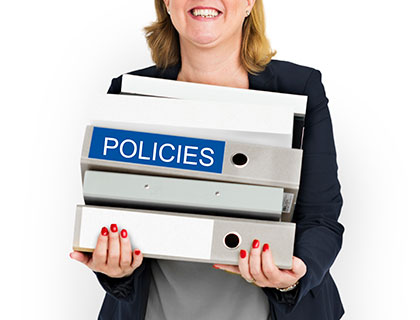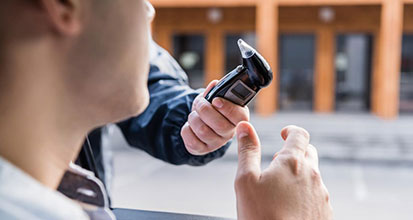 If you’ve been charged by the police in Victoria, it’s important to understand that the police will determine whether to lay charges based on the evidence they've collected. Simply put, the police will lay charges if they believe that the evidence against you is strong enough to indicate that you likely committed a crime.
If you’ve been charged by the police in Victoria, it’s important to understand that the police will determine whether to lay charges based on the evidence they've collected. Simply put, the police will lay charges if they believe that the evidence against you is strong enough to indicate that you likely committed a crime.
When the police charge you with a crime, you have certain rights and obligations. Knowing them is very important. First and foremost, if the police arrest you because of a charge, you should cooperate and go with them, otherwise, you run the risk of being charged with evading police.
Beyond that, you have the choice to speak with the police as part of their investigation or remain silent, you also have the right to call a lawyer. Below are some details that you should consider if you have been charged with a crime in Victoria.
If the police have charged you with a crime, it’s always a good idea to seek the advice of an experienced criminal lawyers. A criminal lawyer’s job is to help defend people who have been charged with a crime. If you’re facing charges, a criminal lawyer can get your side of the story, prepare a defence for your case and help you get a lighter sentence or in some cases, even help you get the charges thrown out entirely.
What Should I Do After Being Charged by Police?
If you’ve been charged, the police will contact you by phone or mail to tell you that you are being charged and what the charges are. If the charges are very serious, then they may come to your house and arrest you there.
How Do The Police Decide To Charge Someone?
The police will only charge someone with a crime if they feel they have strong evidence against them. In serious cases, the police will usually consult with the Office of Public Prosecutions. The OPP may tell the police that they do not have enough evidence and must continue investigating, so charges can be delayed from the time that the police start an investigation to the time a charge is made.
What Happens After Charges Are Made?
How you should respond to charges depends on the seriousness of the crime. In some cases, you will be detained until a court date. In other situations, you may simply be informed of the charge and then required to appear in court at a certain date and time. Alternatively, you may be allowed to post bail.
What Should I Do If I’ve Been Arrested?
You must go with the police if you have been arrested. However, if you are not under arrest, you do not have to go with the police anywhere. If you are unsure, you may want to specifically ask the police officer: “Am I under arrest?”
The police are allowed to use reasonable force to detain you if you are arrested and refuse to cooperate. Generally, they can only use force if you are being arrested and you do not come voluntarily. In most situations, it is in your best interest to cooperate.
How Long Can I Be Detained?
Once you are in custody, the police can hold you for a reasonable amount of time while they wait for you to be charged. Unfortunately, it is not necessarily clear what a “reasonable” amount of time may be. For instance, what is reasonable for a minor crime might not be reasonable for a more serious charge. The time they detain you might also depend on how long it takes to interview you or what additional steps they are taking to investigate the alleged offence.
What Happens If I’m Taken Into Custody?
If you are taken into custody, the police can take several actions. They will usually ask for some basic information about you and ask if you would like to voluntarily give a statement. They might also ask to interview you. In many situations, they can also:
- Search your person
- Photograph you
- Take your fingerprints
- Charge you and most likely set bail
Before interviewing you, the police must give you several warnings or cautions. Specifically, they must inform you that you do not have to provide an interview and that anything you say may be used in the charges against you.
I’ve Been Granted Bail, What Do I Need To Know?
Bail is a legal mechanism allowing someone charged with a crime to be released from custody while awaiting their court date. Here's what you need to know about bail in Victoria:
Bail Conditions: If you're granted bail, there might be specific conditions attached. These can include reporting to a police station at regular intervals, not contacting certain individuals, surrendering your passport, or staying at a particular address.
Bail Decisions: The decision to grant or deny bail is based on several factors. These include the nature and severity of the alleged offence, past criminal history, and any potential risks to the public or witnesses.
Bail Amount: The amount set for bail will vary depending on the seriousness of the charge, the individual's financial situation, and the perceived risk of the accused not attending court.
Bail Hearing: If bail isn't granted immediately, the accused has the right to a bail hearing. This is a court proceeding where the magistrate or judge evaluates the case's circumstances and determines whether to grant bail and under what conditions.
Breaching Bail: It's crucial to adhere to all bail conditions set by the court. Failing to comply can result in arrest, revocation of bail, and additional charges. It might also impact any future requests for bail and can even lead to a harsher sentence due to the judge or magistrate treating your case with less leniency.
If you or someone you know has been granted the option of bail, it's advisable to seek legal counsel to navigate the intricacies and ensure your rights are protected.
Do I Get A Phone Call While In Custody?
If you are in custody, you get two phone calls. The police are required to give you private space to use the phone.
You can call a friend or relative, and you can call a lawyer. It is a good idea to contact a lawyer right away once you have been arrested, even if you have not yet been charged.
However, there may be an exception to this general rule if they think you will call someone else involved in the crime or if you are attempting to destroy or move evidence. Some individuals who are taken into custody for intoxication charges may not get a phone call, either.
Wrongful/False Charges By The Police
If you have been wrongfully charged or detained, you may have a legal claim against the Victoria Police Force for false arrest, unlawful imprisonment, or malicious prosecution. Talk to a lawyer to learn more about your rights in these circumstances.
Conclusion
Being charged and arrested can be frightening, the first thing you should do if you or someone you love has been charged with a crime or arrested, is to contact an experienced criminal defence lawyer. They can help you put together the best possible defence, and get the best outcome for your case. Our team of expert criminal defence lawyers are available 24/7. Call us on 03 9733 2344 to request a free case evaluation.


